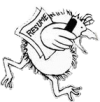Blog
In a recent radio interview, Deputy Prime Minister Julia Gillard said the global financial crisis might have dented the Australian job market, but she had faith that employers would not overlook the value of skilled staff.
This faith will be truly tested in the coming months as the federal Government's $42 billion economic stimulus package is rolled out. The rate of new jobs created or jobs saved will be keenly monitored by the Government, business and the broader community. According to the ANZ series, the number of jobs advertised fell by 6.3 per cent in January, bringing the total decline during the past year to 34 per cent. The most recent Australian Bureau of Statistics figures show that unemployment has risen to 5.2 per cent. So, what can people do, in this economic climate, to hang on to their jobs when employers seem to be shedding jobs daily? If a company is losing money or cannot trade, employers have little choice and employees have even fewer options. However, if there is the slightest opportunity in which to pitch your case to be retained, would you be ready with the right arguments? You have nothing to lose, so take a proactive approach and get your pitch ready. In most presentation situations, you have just two minutes to grab a person's attention and be clearly heard, so make it short and to the point. Here is how to prepare for your two minute pitch. First and most important, switch on to the employer's perspective and focus on what the company needs. Research your company's markets, products, performance and future direction as though you were taking over the chief executive's position. Take an A3 sheet of paper and divide it into three columns. Head the first column as the company perspective. The second is for your role. The third is for the skills and attributes you can contribute to the bottom line. In the first column, step into the shoes of the CEO who needs to make some hard decisions. List the jobs, skills and attributes that are essential for the organisation to retain to survive the downturn and continue operating, preferably in profit. In the second column, list the value of your role to the organisation from the CEO's perspective. Do this in an objective and dispassionate way and make sure you quantify the value of the role to the www.theaustralian.com.au For example, if you are in marketing or sales, what does your job contribute to this activity? How much does it bring in terms of business-income? Some roles are more difficult to quantify than others: for example, administrative or information technology roles. However, you can make an estimate of the amount of additional time it would take someone to incorporate your responsibilities into their role. Then, that time needs to be costed at their pay rate, or alternatively what would be the consequences for the organisation if your role did not exist. Again it is important to quantify the loss in terms of profit -productivity-growth. In the third column, list the skills and attributes you can contribute in the short. medium and long term to the company's bottom line. Highlight how and where your skills, attributes and attitude clearly match the present and future needs of the organisation. Now the fun bit. On a separate sheet list the key reasons why you should keep the job. Make sure the list is in order of value to the organisation. Ensure that at least some of your reasons are clearly quantified in dollar terms. Working through this process gives you two distinct advantages. First, by thinking from the employer's perspective, you focus on the role and its contribution to the organisation's future, rather than on your personal needs. Remember employers make decisions based on the benefits to the organisation. Second, it will help you to organise your arguments into a logical, brief and to-the-point presentation and give you the confidence to take advantage of whatever narrow window of opportunity there is to make your pitch. Finally it is essential to practise saying your points in a clear, concise conversational manner, keeping to the two-minute time frame. In this way, if and when the situation arises, you can deliver your pitch sounding as if you have just thought of all these reasons on the spot. It could be your quick thinking that makes the difference.
Published in The Weekend Australian March 14-15 Weekend Professional page 2
© 2024 Impressive Interviews. All Rights Reserved.

